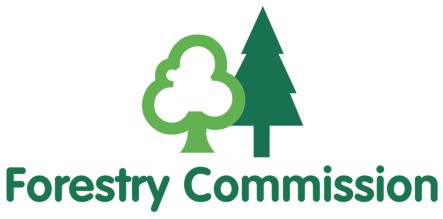Routes into forestry careers
Updated 18 September 2024
Applies to England
Whether you’re just starting your career or considering a change, here’s what you need to know to become a practical forester.
Before you start, explore the qualifications and experience needed for the main forestry roles on the Lantra webpage.
Early careers and qualifications route
Gain the qualifications you need for your future role in forestry.
You can skip to:
- Level 1 and 2 (GCSEs, college and apprenticeships)
- Level 3 (A levels, T levels and apprenticeships)
- Level 4 to 7 (degree level)
Level 1 and 2 (GCSEs, college and apprenticeships)
Choose an option that suits your level:
GCSEs (level 1 to 2)
Many subjects support a forestry career, from biology and chemistry to geography and business studies, read more at Royal Forestry Society (RFS) GCSE options.
Forestry and arboriculture college courses (level 1 to 2)
Read more about Royal Forestry Society college courses.
Arborist apprenticeship (level 2)
The Arboricultural Association have listed training providers for Arborist apprenticeships (level 2).
Distance learning
Read more at Royal Forestry Society (RFS) distance learning.
After completing one of these options consider further study, such as a level 3 qualification. You can also look at paid traineeships and apprenticeships or volunteering.
Level 3 (A levels, T levels and apprenticeships)
A levels (level 3)
Many subjects support a forestry career, from biology and chemistry to geography and business studies, read more at Royal Forestry Society A level options.
Forestry and arboriculture college courses (level 3)
Read more at Royal Forestry Society college courses.
Forest craftsperson apprenticeship (level 3)
Learn more and find an apprenticeship.
Distance learning
Read more at Royal Forestry Society distance learning.
After completing one of these options consider further study, such as a degree level qualification. You can also look at paid traineeships and apprenticeships or volunteering.
Read our top tips for finding your role in forestry.
Level 4 to 7 (degree level)
Forestry undergraduate and degree courses
Find courses through Royal Forestry Society university courses or UCAS course search.
Professional forester degree apprenticeship
Read about the professional forester degree apprenticeship (BSc, level 6) at the University of Cumbria.
Distance learning
Read more at Royal Forestry Society distance learning.
After completing one of these options consider your development opportunities, and read our top tips for finding your role in forestry.
Career changers and professional development route
Build on your transferable skills and gain valuable forestry experience and certifications.
Volunteering
Get involved in practical tasks in your local community woodland to learn basic techniques.
Here are just a few volunteering initiatives to explore:
- Forestry England
- The National Trust
- Woodland Trust
- The Wildlife Trusts
- National Parks UK
- The Tree Council
- Woodland Trust Youth Council (for those aged 16-25)
- Woodland Trust youth initiatives (for those aged 16-25)
Placements and work experience
Work experience will build on your practical skills. Look for placement opportunities at the Institute of Chartered Foresters.
Short courses
Upskill to gain valuable skills:
Some courses may be eligible for the Forestry and Arboriculture Training Fund, which covers training costs for short, practical forestry and arboriculture courses. The fund is designed for people considering a change of career or seeking to build and diversify their skills in forestry and arboriculture. Search the courses eligible for the fund.
Traineeships and apprenticeships
‘Earn as you learn’ with these opportunities:
For more apprenticeship opportunities, follow the early careers and qualifications route.
Gain professional recognition
Become a member or apply for certifications that recognise your professional skills.
Get certified with:
Chartered status
You can get your professional skills internationally recognised.
Get chartered status with the Institute of Chartered Foresters (get chartered).
Top tips for finding your forestry role
Get a driver’s license
A driver’s licence and vehicle, or the ability to travel to remote locations is essential for on-site forestry roles.
Go self-employed
Many foresters are self-employed. Get advice on working for yourself and setting up as a sole trader.
Check job boards
Check out your local job boards and Civil Service Jobs for forestry roles. You can also see our list of where to find forestry jobs.
Know your options
Explore your options with these careers resources:
- The RFS careers page
- Lantra careers search
- Institute of Chartered Foresters career advice
- The RFS induction pack
Transferable degrees
You can directly apply for forestry jobs with related degrees such as biology, engineering, environmental science and geography.
Transferable skills
Consider what transferable skills you can demonstrate in your job applications. Examples include, community engagement, dealing with stakeholders and problem solving.

